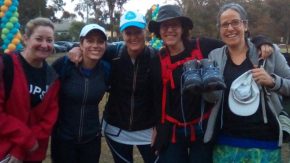PYP – Being Reflective
As a PYP School, there are 10 Learner Profile Attributes that we look for in a life-long learner: Inquirers, Knowledgeable, Thinkers, Communicators, Principled, Open-Minded, Caring, Risk-Takers, Balanced and Reflective. The focus at this time of year is on being Reflective.
So .. . what does it mean to be a reflective learner? Why should we reflect?
Reflective thinking is widely recognised as a critical skill in learning and learning to learn. Increasingly teachers are encouraging students to take a moment and think about why, what and how they are learning.
Reflection has numerous benefits for students:
- It deepens understanding encouraging them to probe their thoughts in more detail and to articulate what it is they know and still need to know
- It helps develop understanding of themselves as a learner – strengths, weaknesses and learning preferences
- It help students understand more about how they think and leads to the capacity to modify and extend their thinking in subsequent learning episodes
- Can help to monitor impulsivity
- It can widen points of view on a topic and expand the possibilities for thinking and understanding
- Reflective thinking can help students see the purpose in something they are doing or have done.
- It connects the student with the meaning behind the learning and therefore increases engagement
- Reflection assists in transferring what has been learned in one context to other contexts.
Throughout their school life, the boys are encouraged to reflect upon their learning. This reflection should continue outside the classroom and beyond the school gate into their adult lives. Reflection in any situation is an integral part of our learning. Knowing how we know and reflecting on this enables us to engage in higher order thinking. We begin to assess the evidence we have collected and collated, reflect on classroom practices, learn from others around us and screen for bias, inconsistency or error.
How do we reflect?
We can reflect in many ways and within many contexts. Reflection can lead to personal growth and deeper understanding. Identifying strengths and areas for improvement are important starting points for reflection. We may also reflect on our thoughts or attitudes and how they may have changed and what has led to this change. Discussions with others often give another perspective to situations and events and can be a catalyst for being reflective.
Encourage your sons
Encourage your sons to be reflective in any situation and model how you reflect on everyday activities yourself. If we never question what and how we learn, we will always have a very narrow and shallow view of life. How can you reflect in your everyday life? Are there real-life contexts in which you need to engage in reflection? Are you embracing your opportunities?
In your sons learning environment
In class, your son uses learning tools to help him reflect on what they are learning about in the class. This reflective practice will be regular and ongoing. Your son will also be using a variety of reflective tools as part of their units of inquiry learning.
Being a reflective learner brings great personal growth.
Sue Gough – PYP Co-ordinator






